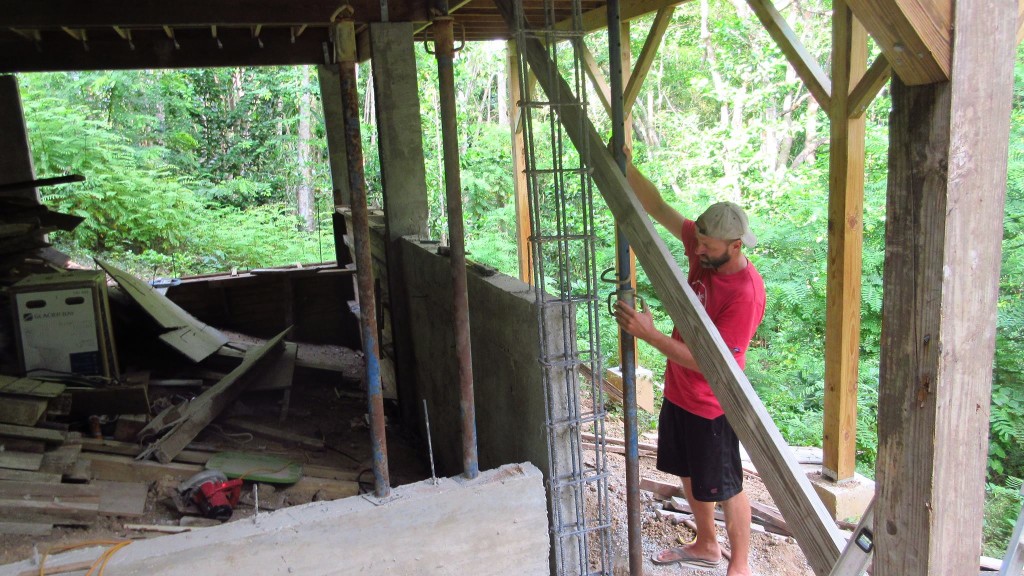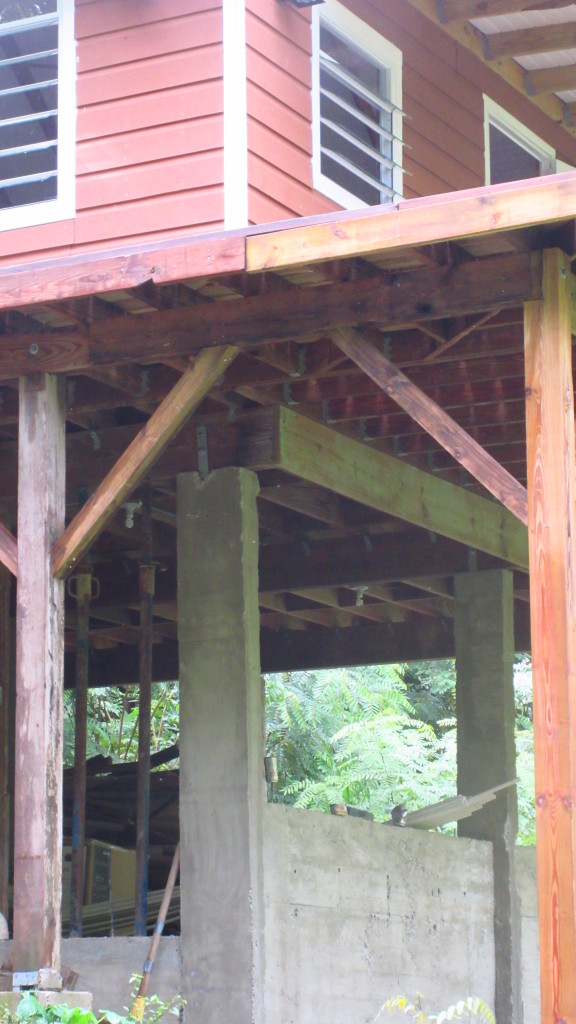Well needless to say building a house is hard. It makes it harder when you’ve never done it before. I suppose that is true of everything though and I love a good challenge. I haven’t ever worked with concrete besides putting in fence posts so there has been a bit of a learning curve. Here is a good example of this learning process….
We are working on building basement walls under the house. In doing so I had to build wood forms between the columns that support the house. We used concrete nails to attach wood forms to the columns. Normally this would be fine. What I noticed was one of the columns was very brittle. In fact when we were putting nails in, entire chunks of concrete broke off….
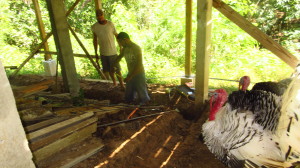
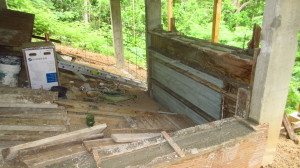
Building Forms Between Columns
We had been suspicious of this particular column since it was made. We had a few people look at it and everyone said something to the effect of, “Oh it’s fine”. I figured that if there was a problem, it would probably be apparent so we have been moving forward with other tasks. When I saw the chunks break off though, I knew that it had become an apparent problem.
When we made the columns we didn’t have a concrete mixer. Now that I do, it is much easier to keep the mix very consistent. I can now readily notice concrete that has the correct level of cement and that was cured properly.
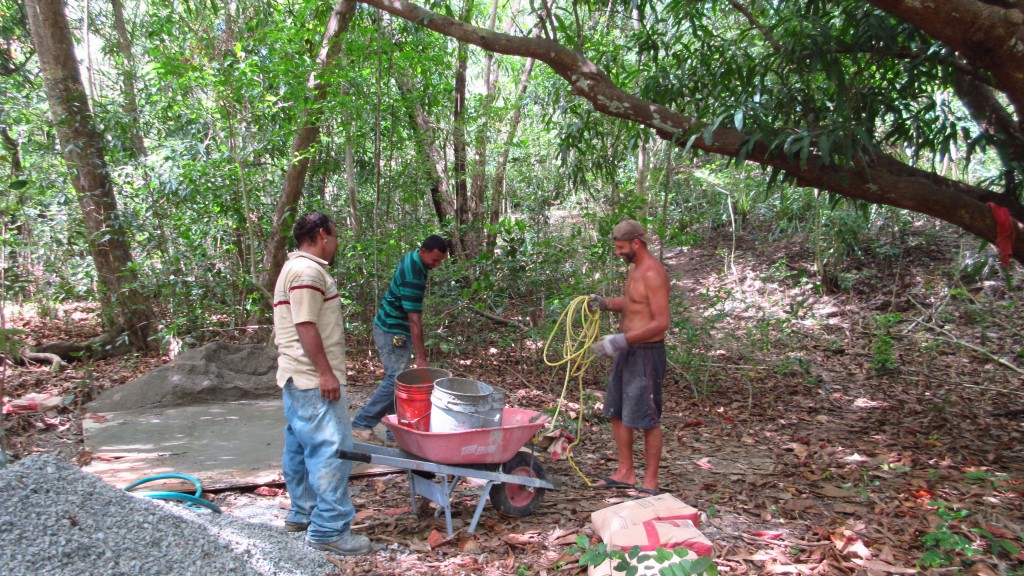
No Cement Mixer

Original Forms
So how do you replace a column that your house is resting on? I did some research on jacking up houses. It is something that is done from time to time so there is actually some information on the subject. Usually people will lift an entire house off its foundation to do repair work. I wasn’t sure how much weight I was dealing with or what kind of jack I might need. After reading up, it turns out that a wood house isn’t really all that heavy (compared to a concrete house). 2x4s plywood, 2x8s and roofing panels. So I settled on a 6 ton bottle jack.
I really only needed to lift the house about 1/8th of an inch off the corner column. Just enough so I could whack the column out with a sledge hammer. The jack worked well for this.
I have never liked being under heavy stuff. Cars on jacks scare the living crap out of me. I just never feel safe. Being under a house on jack stands is even worse, especially when it starts to creek and moan. Online forums had prepared me for this saying that the house will make noise. Even just 1/8th of an inch. Go slowly.
I then was able to pound out the column down to rebar. It was at this point I knew I had made the right decision, it was ridiculously brittle. It took no time at all to remove the column, it basically just crumbled apart.
I have learned a lot about concrete in a short amount of time. The mix of rocks, sand, cement and water is extremely important to get right. Curing is also important. When we made these columns I had trusted that the guys had made concrete before and knew what they were doing. And for the most part they did, the other 11 columns are fine. It was just this first column that was poured that either didn’t have enough cement OR didn’t have enough water. I think it was a lack of water.
Another part of working with concrete is making forms. The forms are the molds. You have to make them very strong because they will be holding quite a lot of wet concrete and it is very heavy. I have heard of stories of forms busting and cement spilling everywhere. Even a man in line at home depot told me a story of a form breaking. Then you have a real mess on your hands.
I also had to think about how I was going to pour the concrete into this form. The house rests on it so there isn’t any room above. I also wouldn’t be able to pump the concrete in. I decided to make a little scoop on the side of the form where I could pour concrete in.
Also important is to use a bonding agent when trying to join cured hard concrete to wet fresh stuff. I used some bull bond on the existing walls where the column was going to be. There is also rebar that joins them. The connection should be sufficiently strong.
All said and done, the new column is fantastic compared to the old one, not that it looks all that different. I have no worries about it now. Looking back I can’t believe that I jacked the house up, took out the column and poured a new one. It seems kind of crazy. Its all done now and I have moved on to other problems, which is a good thing.

